The OrJames Lab's Special Events and Outreach Programs
Local School Districts -The OrJames Laboratory welcomes K-12 students from local school districts annually to demonstrate healthy ways of living while doing physical activities and working with animal dissections.
SPRING 2020
THE OLYMPICS AND ATHLETICISM
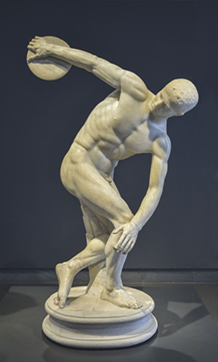
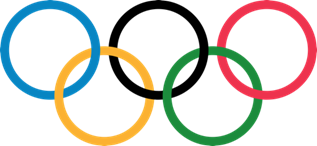
THE OLYMPICS AND ATHLETICISM — Wednesday, February 12, 6:30pm
Athleticism undoubtedly continues to intrigue, inspire, and reveal much about character not only to an audience of a few individuals, but potentially a world audience. At the same time, athleticism has shown the ability to transform, alter and build community. As the OrJames Lab honors both Black History and Women's History Months, we will explore the role athleticism has played in developing the culture, identity, politics and economics of African-Americans living within the United States of America. We will also explore the inherent benefits and advantages of athleticism and why varying institutions provided extremely limited resources in support of female athleticism. We will also look at measures taken to overcome this within the United States of America. Our exploration will begin with the Olympics of Ancient Greece along with the historians and philosophers of that time as a point of departure. Please join the OrJames Lab once again for another semester of wonderful, insightful events!
This opening lecture will provide us with a broad overview of the definition of athleticism, along with guiding philosophies from Epitetus, Aristotle and Plato on why the athlete may be intriguing, the need for athleticism (mens sana in corpora sano) and the character needed to be a successful athlete. We will also look at the Olympic Games, which were present during their time in Ancient Greece. Emphasis will be given to what athletes have done for the "soul" of the country and impact these games and individuals have had on the relationships between citizens of varying city-states of Ancient Greece, before transitioning into how and when the Olympic games along with the "athletic spirit" made their way to the modern world. We will also look at games that became popular in Ancient Greece and persisted in the Modern World. These include: wrestling, boxing running and equestrian sports.THE ORJAMES LAB HONORS BLACK HISTORY MONTH
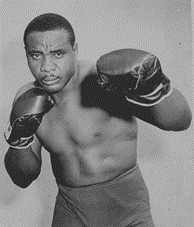
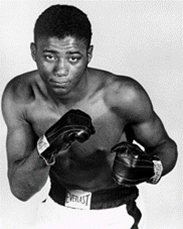
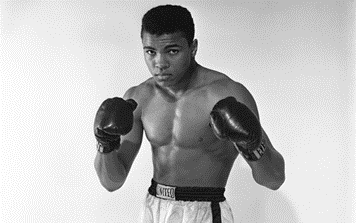
Boxing and African American Athleticism - Liston, The Unwanted Champion. A Look at the Significance of the Liston—Patterson—Clay Fight Series. — FEBRUARY 19, 6:30pm
The Ancient Greek historian Pausanias succinctly describes the relationship between the athlete Sotades and his fellow community/state members in his writings, stating:
"Sotades at the ninety-ninth Festival was victorious in the long race and proclaimed a Cretan, as in fact he was. But at the next Festival he made himself an Ephesian, being bribed to do so by the Ephesian people. For this act he was banished by the Cretans."
The above quotation implies how athletic games and the athlete became a vehicle for city-states to promote themselves and their ideologies. During this event we will briefly look at the history of boxing as it pertains to African-Americans, we will look at racial obstacles, a few key fighters and emphasize the importance of a number of fights, but one series of fights in particular in which African-Americans will use boxing as a vehicle to not only discuss their identity and some ideologies amongst themselves but also within America. This series of fights took place during the height of the Civil Rights Movement between 1962 and 1965 and included a number of bouts between Sonny Liston, Floyd Patterson and Cassius Clay ( Muhammad Ali). We will look at how these boxing matches gained the attention of government officials and what they meant for representation of African-American ideology.

The Negro League, Jackie Robinson & Hank Aaron-Integration, Community and Economics — February 26, 6:30PM
This event will highlight the formation of the Negro Leagues (baseball leagues comprised of primarily African-Americans and a few Latinos) in the early 1900s. In addition to looking a Rube Foster, who played a key role in the operations of the Negro Leagues, we will revisit the idea of athleticism playing a role in community building. Emphasis will also be given to how sporting events led by an organization such as the Negro League contributed to the local economy. Time will be spent discussing scholarship addressing the potential economic cost to the African American community when the White Major Leagues decided to integrate teams, removing key players like Hank Aaron, Jackie Robinson among others, from the Negro Leagues.
THE ORJAMES LAB HONORS WOMEN'S HISTORY MONTH (These events will be held online as Labinars)
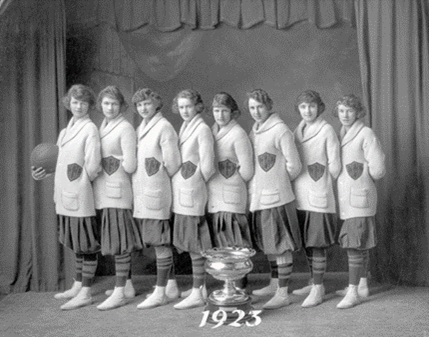
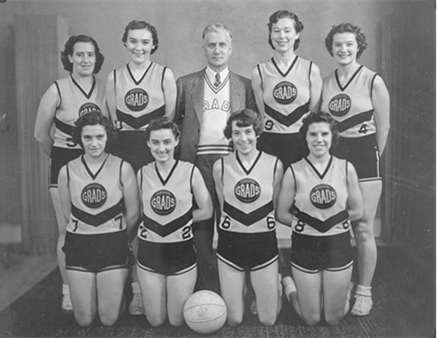
The Edmonton Grads Basketball Team(Canadian) - Embodiment of the Changing Spirit. - March 18, 6:30pm
The Edmonton Grads Basketball Team became a global cultural phenomenon between 1915 and 1940. Though this team was based in Canada, they would become the embodiment of the "the new woman" globally. Come learn more about this team and their ability to use athleticism to alter public attitudes of women.
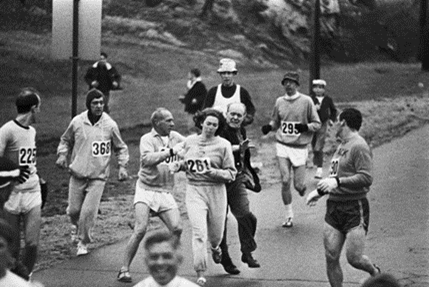
Katherine Switzer and The Boston Marathon - Wednesday, March 25, 6:30PM
Katherine Switzer made history in 1967 when she was the first woman with a number to complete the Boston Marathon. This however, occurred after registering under K.V. Switzer, a gender-neutral name. After it became clear she was a woman, efforts were made publicly to remove her from the race. Come learn more about Katherine and how her athletic spirit led to a social revolution. As she puts it: "The Boston Marathon itself is a microcosm of this social revolution, this history of women's running." A discussion on the passage of Title IX, which was enacted a few years after her performance, will also be provided.
ALL ROADS LEAD TO AUSTRIA AND SLOVENIA 2020

(CANCELLED DUE TO CORONAVIRUS)Traditional Meal From Austria and Slovenia -April 1, 6:30pm (CANCELLED)
Come enjoy a traditional Austrian meal and Slovenian dessert. Win prizes while playing Jeopardy. Regular dining hall prices apply. THIS EVENT IS CANCELLED

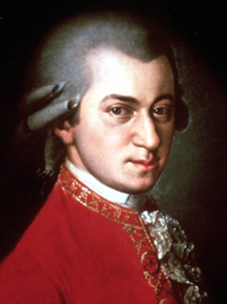
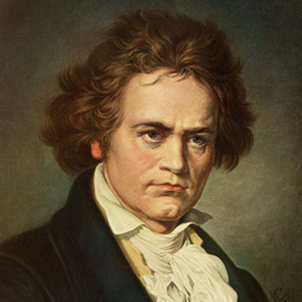
MOVED ONLINE: MEET THE GIANTS OF CLASSICAL MUSIC APRIL 8, 6:30PM - April 10
The music of these composers remains in our presence to this day. Joseph Haydn's "Gott erhalte Franz der Kaiser" (God save Francis the Emperor) is the music behind the University of Pittsburgh's alma mater sung at important events. Wolfgang Amadeus Mozart's music continues to endure in film, academia and science globally. Beethoven reminds us of the sound of classical music with his 5th symphony. Students coming with me to Austria(Trip cancelled this year) will not only experience the rich culture that nourished these geniuses, but also experience their music as it relates the medicine. Come learn more about the lives of these individuals, their music and lasting legacy.
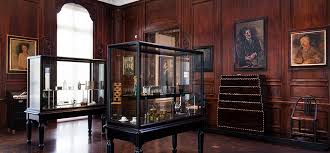
(CANCELLED DUE TO CORONAVIRUS) Excursion to Museums in NYC - April 19
This popular excursion returns. Attendees will first explore medieval art, as we begin our exploration at the Cloisters museum, than we continue onto the Neue Galerie to explore the works of Austrian artists, with the emphasis on Egon Schiele this year. The day usually concludes with attendees spending the remainder of the time visiting exhibitions at the Metropolitan Museum of Art. Final details are forthcoming. Departure is extremely early (roughly 2am)
FALL 2019
HEALTHCARE IN AMERICA THE URBAN-RURAL DIVIDE & COMPARATIVE HEALTHCARE IN GRAZ GENERAL INTEREST MEETING - SEPTEMBER 4, 6:30PM
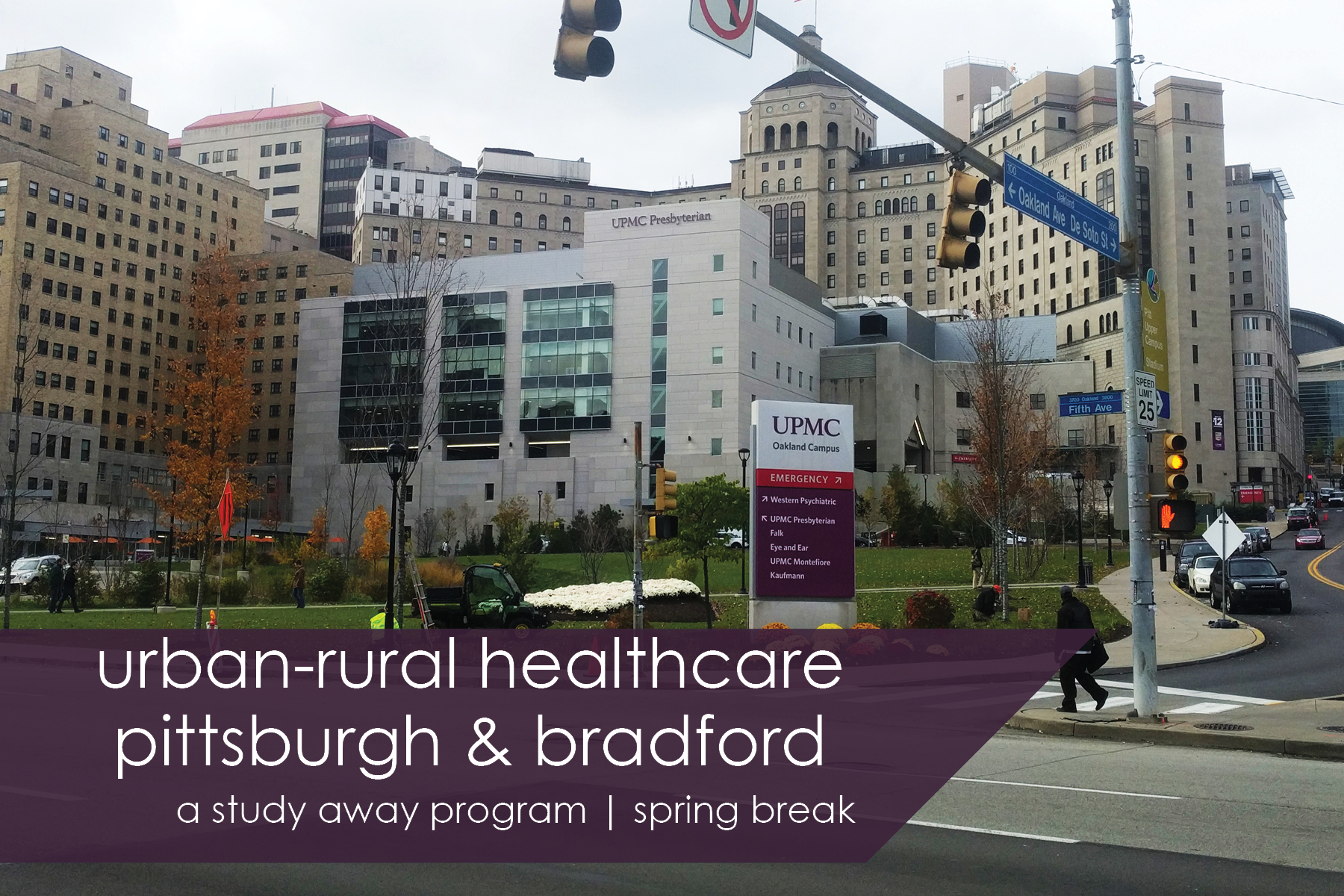
Come learn more about these exciting programs offered during spring break and summer session I.
The Weekend Special: —*The Maker Space*: the Lathe & Wood turning FRIDAY, SEPT. 13, 6:30PM & SATURDAY, SEP. 14, 10AM

Friday 6:30pm‐ The Lathe: The lathe is a tool used to turn metal or wood. At this session, you will learn the anatomy of the lathe, speed control, and how to operate the wood lathe. This session may last an hour and a half.
Saturday 10am‐1pm: Make your own pen, bowl or pepper mill. Here individuals will have the opportunity to make and take a pen, bowl or pepper mill, using the lathe. Individuals planning on making any of those items, MUST attend the session on the lathe on Friday, Sept. 13.
THE ORJAMES LAB PRESENTS AN INTRODUCTION INTO THE EQUESTRIAN WORLD
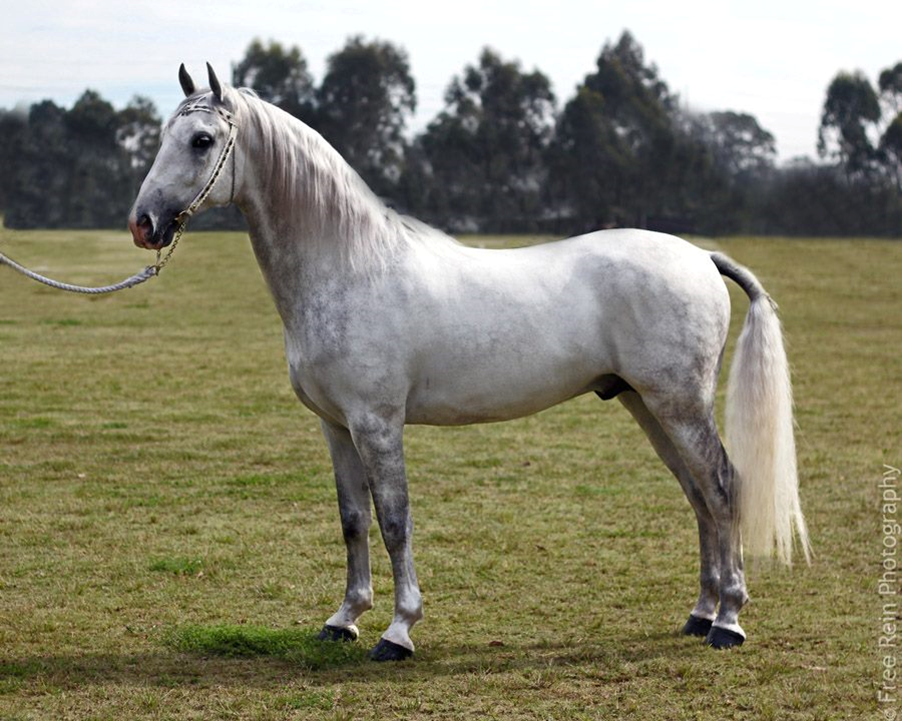
The Lipizzaner Horses - September 18, 6:30pm
For centuries the Lipizzaner horses have played an important role in the equestrian world. Though their use in early times was for warfare, today they represent “high school” movements and the standard for classical dressage. This event will highlight the history and origins of these horses, how they are trained have a discussion on how they are used today. We will also look at one of their performances.
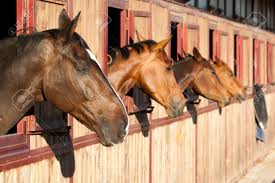
Meet Some Horses and Discuss Hippo Therapy. - September 25, 6:30pm (departure time)
Here we will visit a local horse stable, meet the owner and trainer of horses that are specially trained to work with disabled children. These horses assist these children in the Special Olympics. Here we will discuss an emerging form of therapy—Hippo Therapy and you will learn of various volunteer opportunities.
THE ORJAMES LAB HONORS HISPANIC HERITAGE MONTH
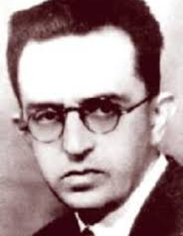
Alfonso Caso - October 2, 6:30pm
Born February 1, 1896 in Mexico City, Mexico, Alfonso Caso y Andrade, would go on to become a leading archeologist, who believed and applied the use of studying systemic ancient civilizations to understand cultural roots. Come learn more about this great individual and the impact his work has on archeology today. Presentation by Orin James.

Jaime Escalante — October 9, 6:30PM
Jaime Alfonso Escalante Gutierrez, born in in La Paz, Bolivia in 1930, would move to American and become one of the nations best known math educators. Between the years 1974 and 1991 at Garfield High School in East Los Angeles, California, Escalante would develop an impeccable teaching method that has worked well for under served students. His works has inspired the film “Stand and Deliver” Come learn more about this great individual and his works. Presentation by Orin James.
THE ORJAMES LAB CELEBRATES THE HUMANITIES AND SCIENCES: WORKING WITH FABRIC

THE SEWING MACHINE - October 23, 6:30PM
Learn the basic hand stitches, along with how to operate a standard sewing machine. Participants will have different types of fabrics to work with. INDIVIDUALS MUST SIGN UP!
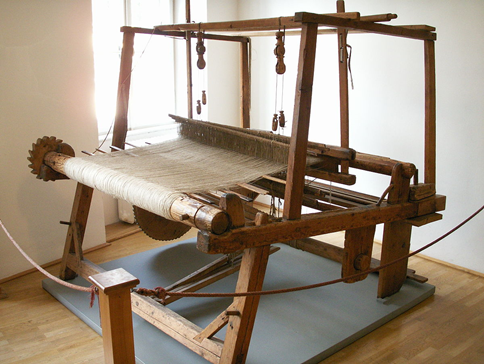
THE LOOM — November 6, 6:30PM
The loom is an extremely old form of technology used to weave cloth and tapestry. Here we will go over the history of the loom, its anatomy and participants will make a small table cloth.
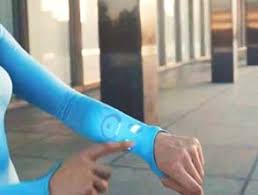
PHYSIOLOGY AS IT RELATES TO FABRIC - November 13, 6:30PM
The use of fabric has important ramifications on human physiology. Deciding what linens you sleep on, the uniforms you may wear, the insulation desired during winter time, etc., all require an understanding of how the fabrics involved may affect your physiological functioning. This event will highlight current research that looks at different fabric types and make up and how each may affect your physiology.
SPRING 2019
Healthcare in America: The Urban/Rural Divide General Interest Meeting - January 9, 6:30pm

Come learn more about this exciting study away opportunity that brings students to Bradford and Pittsburgh during spring break.
The Weekend Special: The Professional Starter Kit

Friday 6:30pm‐ 9:30pm: intro to HTML and CSS, understanding text editors, manipulating images, videos and text, positioning, working with colors, creating links and several pages.
Saturday 10am‐1pm: Understanding servers, launching personal webpage online using space allocated for you by the university.
The OrJames Lab Honors Black History Month: African - American Music
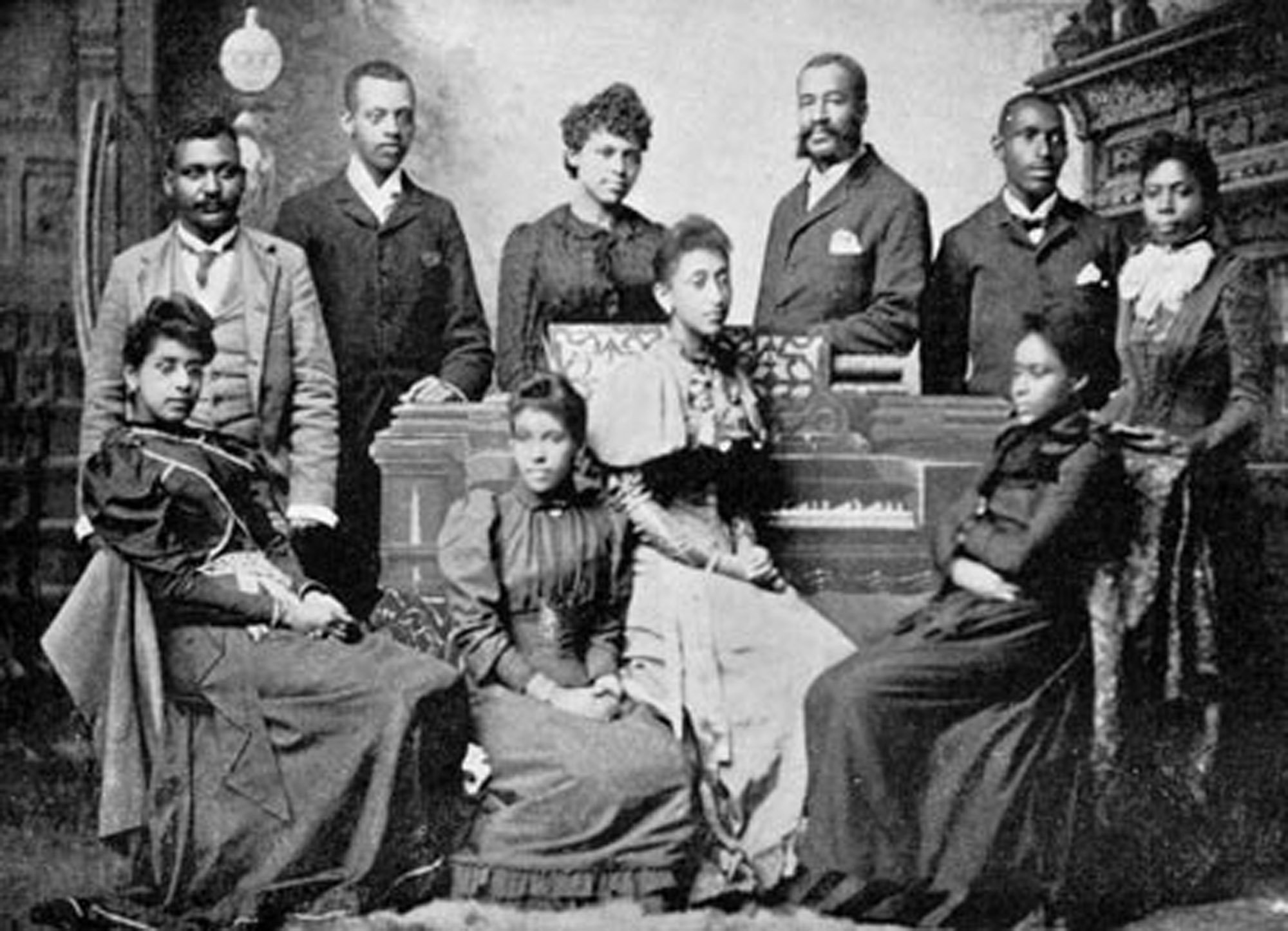
The Negro Spirituals - February 6, 6:30pm
Inspired by the cruelties of slavery, African-American slaves sung of sorrow, crushed hopes, and the misery of daily life. Through these sad strains can be heard a trusting faith in the after life. These songs would persist well after slavery and can still be heard today in the form of gospel music. During this event, we will analyze some of these songs. We will also look at the musicality of some of these songs and its lasting impact on global popular culture. A brief discussion of the significance of the church will be provided. Special attention will be given to the Fisk Jubilee Singers. Presentation by Orin James.

R and B Music - February 20, 6:30PM
Our exploration of African-American music continues as we look at the beginnings of popular R&B music rooted in the gospel music and the church discussed during the previous event. We will navigate the broad landscape of musical genres that were packaged as rhythm and blues. We will pay close attention to the lyrics and rhythm of Sam Cooke, Aretha Franklin and Otis Redding and draw connections to their music and the negro spirituals as discussed in the previous event. Presentation by Orin James.

Hip Hop and DJ Workshop - February 27, 6:30PM
It is often said that the house of hip-hop is built from graffiti, breakdancing, MCing and DJing. This workshop will provide attendees with a history of DJing as the house of hip-hop was being constructed. Participants will learn how the DJ sought to not only "rock the party", but also create a new instrument out of the use of turntables, an art form that would become known as turntablism. Those who attend this workshop will learn and perform basic scratches using real vinyl records from my collection, two turntables and a mixer. These scratches include, chirps, transformers, stabs, flares (for the more advanced). Attendees will also learn a bit of beat juggling using both turntables simultaneously.
The OrJames Lab Honors Women's History Month: The Early Warriors
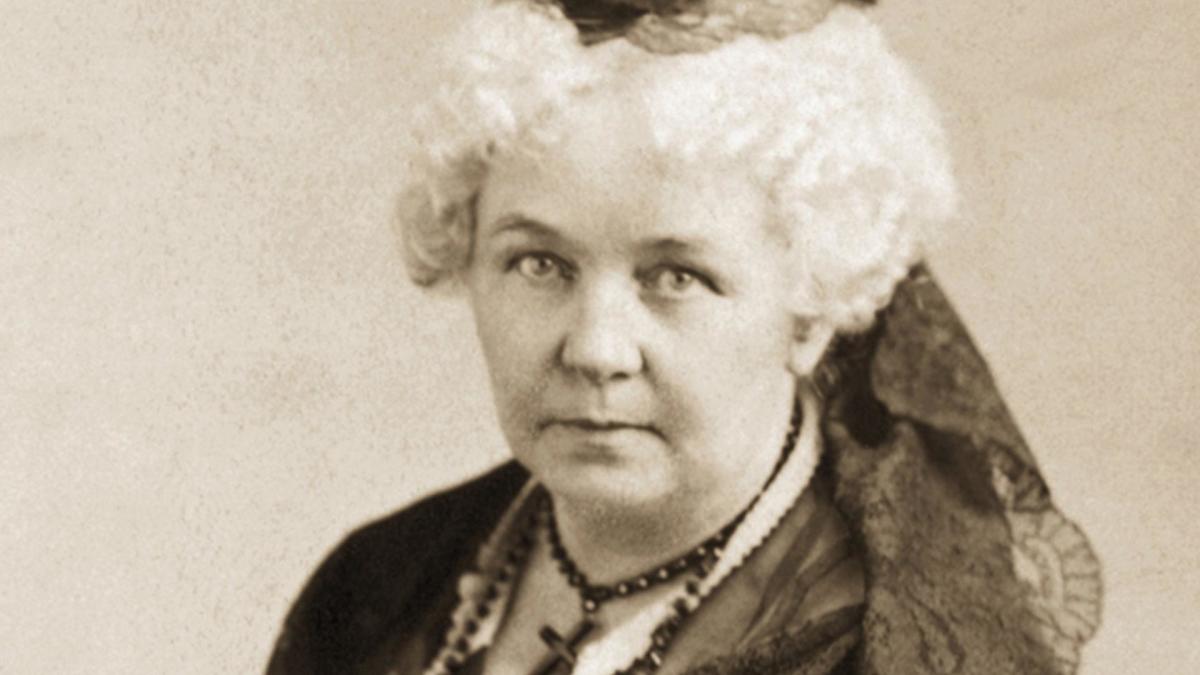
Elizabeth Cady Stanton - March 6, 6:30PM
Born on November 12, 1815 in Johnstown, NY, Elizabeth Cady Stanton would become a leading figure in not only the women's rights movement, but also in matters of abolition, property rights, income rights, voting rights among many other things that much of her philosophy and ideology would influence and develop. Come learn more about this great individual and her works. Presentation by Orin James.
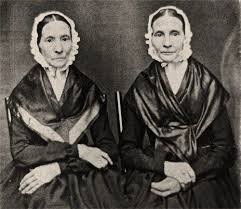
The Grimke Sisters - March 20, 6:30PM
Sarah Moore Grimke (1792-1873) and Angelina Emily Grimke (1805-1879) were sisters born into a wealthy slave holding family.in the South. Both became outcasts due to their strong opposition to slavery and support for women's rights. Their work along with Elizabeth Cady Stanton (See previous event) would set the stage for the First Women's Rights Convention held in Seneca Falls, NY in 1848. Come learn more about these great individuals and their works. Presentation by Orin James

Excursion to Seneca Falls - March 27 : All day excursion from 5:45am (departure) to roughly 4pm (return to campus).
The excursion to the Women's Rights National Historical Park in Seneca Falls is designed not only to provide additional information on the individuals discussed in previous weeks, but also to add breadth and depth into understanding the scope of work that went into setting the ground work for a movement that would make it to the national stage and have a profound lasting effect on the United States of America.
All Roads Lead to Austria and Slovenia 2019

Traditional Meal From Austria and Slovenia -April 3, 6:30pm
Come enjoy a traditional Austrian meal and Slovenian dessert. Win prizes while playing Jeopardy. Regular dining hall prices apply.

Egon Schiele - April 10, 6:30pm
Born June 12, 1890 in Tulln an der Donau, Austria, Egon Schiele would go on to work with Gustav Klimt and become a major figure in the Art Nouveau, Secession and Expressionism movements. During this presentation, we will explore his life and most notable works. Presentation by Orin James.

Excursion to Museums in NYC - April 19
This popular excursion returns. Attendees will first explore medieval art, as we begin our exploration at the Cloisters museum, than we continue onto the Neue Galerie to explore the works of Austrian artists, with the emphasis on Egon Schiele this year. The day usually concludes with attendees spending the remainder of the time visiting exhibitions at the Metropolitan Museum of Art. Final details are forthcoming. Departure is extremely early (roughly 2am).
FALL 2018
Comparative Healthcare in Graz General Interest Meeting - September 5, 6:30pm
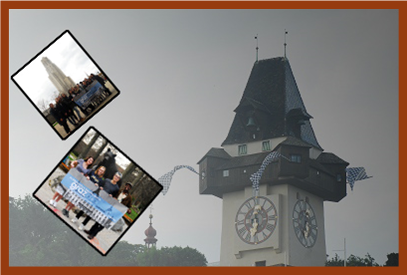
Come learn more about this popular exciting study abroad opportunity from me and students who have experienced it.
The Weekend Special: Peep the Technique - The Histotechnologist
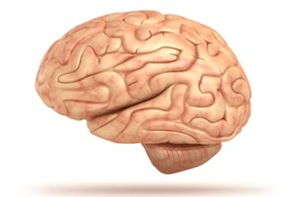
The Histotechnologist - Friday, September 14, 6:30pm + Saturday, September 15, 10:00am
The weekend special directly immerses students into techniques that are used by individuals in the health industry. This semester the OrJames Lab highlights the techniques of the Histotechnologist. This individual often goes unnoticed, but plays a vital role in the detection of tissue/organ abnormalities. This two-day event will take students via hand-on activities through the procedures used by the histotechnologist. Upon completion, students would have created a professional tissue slide that can be used for analysis under a light microscope. We will use the brain as our organ of interest. On Friday, we will interact with real human and animal brains to map the location of various activities, we will also observe the abnormalities of a real human brain that suffered from Pick’s disease (a rare form of dementia). Participants will than proceed to dissect the animal brains and select a region of interest to study. Participants will then remove a small portion of the brain and prepare it for tissue processing. This will conclude Friday’s activities (plan to be there until 9pm). On Saturday participants will return to embed their tissue, which would have been processed by me overnight, section it using industry standard microtomy and stain them using special staining techniques for neurons, before viewing them with a microscope. We will discuss what to look for using the microscope. We will also discuss the career of a histotechnologist. This will conclude Saturday’s activities (plan to be there until 1pm).
The OrJames Lab Honors Hispanic Heritage Month
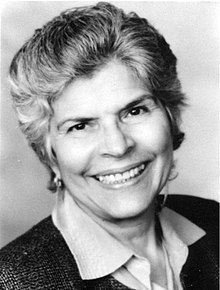
Helen Rodriguez Trias - September 26, 6:30pm
Born July 7, 1929, in New York City, Helen Rodríguez Trías, among many accomplishments, is remembered for her work in the public health sector. Her work has led to the reshaping of practices around female sterilization and individuals suffering from AIDS. Come learn more about this great individual and her works. Presentation by Orin James.

Albert Baez - October 10, 6:30PM
Albert Baez was born on November 15, 1912 in Puebla, Mexico. The father of the famous Joan Baez and Mimi Farina was also famous in his own right. Albert in 1948 would co-invent the X-ray reflection microscope used to examine living cells still used today. Come learn more about this great individual and his works. Presentation by Orin James.
The OrJames Lab Celebrates the Humanities and Sciences: The Marionette Theater

The Baroque Theater - October 24, 6:30PM
The baroque theater will serve as our point of departure for our exploration of the marionette theater. The baroque theater would bring about new innovations that would serve as the model for the marionette theater. These innovations included formulation of perspective laws, lighting techniques using wick-fed illuminants, ceiling fixtures, scenery design, special sound effects among many other things. During this event we will explore the baroque theater’s history. We will view short film excerpts demonstrating how it works. We will also explore the idea of “Gesamtkunstwerk”, a concept strongly associated with Richard Wagner, that emphasizes the use of all forms of art to create the ideal work of art, something the marionette theater attempts to do using the baroque theater as its model.
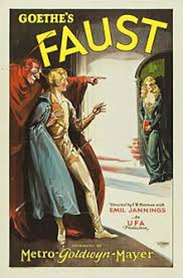
The Marionette and a Reading of Faust - November 7, 6:30PM
This event will illustrate the various uses of the marionette and its development in Germany, Austria and Czech Republic. We will begin with the life of the traveling puppeteer and conclude with the rapid growth of the actual marionette theater throughout these countries. We will then begin our exploration of texts used for theatrical performances, many of which were fairy tales, but we will look at Goethe’s Faust, which remains a popular play performed in the marionette theater. This play thrusts the role of rational thought and science in the eventual perfection of humanity, a concept argued during Enlightenment. Faust argues starkly against this notion. In fact, Faust demonstrates that the quest for knowledge through science may prove to be destructive.
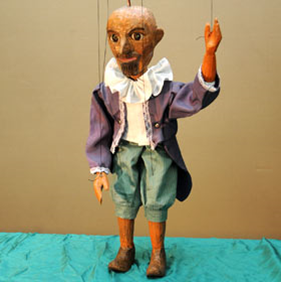
Marionette Performance of Faust - November 28, 6:30pm
COME WATCH A VERY SHORT MARIONETTE PERFORMANCE OF FAUST! PRODUCTION BY ORIN JAMES!SPRING 2018
Black History Month -The OrJames Laboratory honors Black History Month.

Alice Augusta Ball - February 7, 6:30pm
Born in Seattle, Washington in 1892, Alice would go on to earn two degrees from the University of Washington, one in pharmaceutical chemistry in 1912, and pharmacy in 1914, before becoming the first woman and African American to earn a master of Science degree in chemistry from the University of Hawaii in 1915. Upon graduating from the University of Hawii, Ball took a teaching post while conducting research there until her death at age 24. Ball created a highly effective method to produce an injectable treatment for leprosy, for which she recently, posthumously received full credit, as her ideas were stolen upon her death by the then chairman of the chemistry department at the University of Hawaii. Come learn more about this great individual and her works. Presentation by Orin James.A Reading of Ralph Ellison's Invisible Man - February 21, 6:30pm
Ralph Ellison himself wrote: "In our society, it is not unusual for a Negro to experience a sensation that he does not exist in the real world at all. He seems rather to exist in the nightmarish fantasy of the white American mind as a phantom that the white mind seeks unceasingly, by means both crude and subtle, to slay." Though this was written in his review of Myrdal's An American Dilemma, it serves as the premise for one of the greatest English novels written, namely, Invisible Man. This novel eloquently demonstrates the ruinous force and power racism has to render one invisible. This novel addresses a variety of themes: conformity/identity, black masculinty, leftist ideology, nationalism, contructed perceptions, among others. In discussing this book, I will reference key theories and historical events that may render the life of the protagonist not only possible but inevitable. The Novel can be found here. In addition to the novel, I will also provide supplementary material, from which I will draw several ideas and theories in my analysis and discussion. If you have time, you may also enjoy these:
Frederick Douglass What to the Slave is the Fourth of July (full text) an abridged audio clip can be found here
US Supreme Court: Dred Scott v Sandford, 1857
US Supreme Court Plessy v Ferguson 1896 (abridged)
W.E.B Dubois Souls of Black Folk
Marcus Garvey Speech delivered in 1917
Sigmund Freud Totem and Taboo
Frantz Fanon Black Skin, White Masks
Malcolm X The House Negro and The Field Negro & The Ballot or the Bullet (Audio)
These are just a few things I will reference. There will be more at the discussion.

Ernest Everett Just - February 28, 6:30pm
Born in Charleston, South Carolina in 1883, Ernest Everett Just would became a pioneering figure in biology. Charles Drew is quoted as saying "Ernest is a biologist of unusual skill and the greatest of our original thinkers in the field." Indeed, Ernest Just would go on to make significant contributions in the areas on the physiology of development. This includes fertilization, experimental parthenogenesis, dehydration in living cells among other things. come learn more about this important individual and his works. Presentation by Orin James.Women's History Month -The OrJames Laboratory honors Women's History Month.
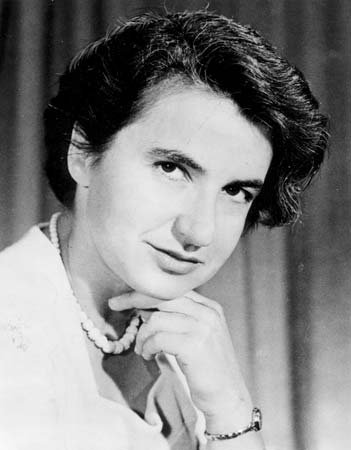
Rosalind Elsie Franklin - March 14, 6:30pm
Born in London, England in 1920, Franklin undoubtedly remains a scientist of great intrigue and controversy. It was her famous Photo 51 that led to the discovery of DNA's structure, but she was not listed as one of the discoverers, raising questions among scientists and non-scientists alike. Come learn more about this great individual and her experiments. Presentation by Orin James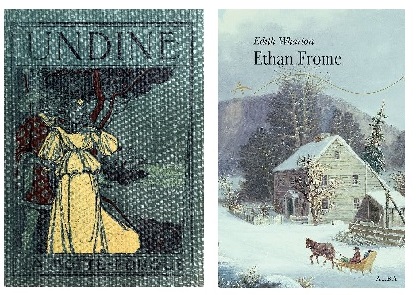
A Reading of Friedrich de la Motte Fouqué's Undine & Edith Wharton's Ethan Frome - March 21, 6:30pm
It is accepted among a wide range of individuals that the notion of gender and the behavioral expectations and patterns found therein is heavily a social construct. However, some may argue that biological factors alone contribute to the behavioral patterns we observe, while some may suggest it is combination of both. A close reading of Fouqué's Undine and Wharton's Ethan Frome may reveal a perpetuation of social expectations that is founded in the development of an aesthetic ideal. Undine was written during German Romanticism and it can be classified as a Kunstmärchen (loosely translated as "artful tale"), as opposed to the Volksmärchen (Folktale). One notable difference between the two is the presence of an author actually creating a tale (Kunstmärchen), while the other is traditionally passed down orally and is merely transcribed by someone usually following a particular format (Mayer, Tismar). The line between the two may begin to blur as the author of the Kunstmärchen may barrow well established motifs from the traditional folktales with minor modification to produce a desired effect, as may be the case in Undine. One of the key philosophers of German Romanticism was Friderich Schlegel. Schlegel sought to achieve infinite perfectibility through a synthesis of contrary forms (Carol Tully). In doing so followers of Schlegel may have used the Kunstmärchen as a vehicle for the symbolic expression of the ideal as the artist might image. The behavior of the key characters reflect expectations and what may happen if those expectations aren't met. A similar trend is seen in Ethan Frome...During this talk, I will explore ways in which the "ideal" is generated with emphasis on gender. I will reference theories and historical events that may demonstrate the presence of the "ideal" in our society and its perpetuation. Below is a list of sources, from which I will draw for our discussion. If you have time you may also enjoy these.
Edith Wharton Ethan Frome
Friedrich de la Motte Fouqué Undine
Friedrich Schlegel: Progressive Universalpoesie
Ferdinand de Saussure: Course in General Linguistics
Carl Gustav Jung's Collective Unconscious by Philipe de Costar Review of Jung's Collective Unconscious
Jacques Lacan The Mirror Stage
Hélène Cixous The Laugh of the Medusa
Michel Foucault: Sex and Sexuality vol. 1
Judith Butler Gender Trouble: Feminism and the Subversion of Identity

Barbara McClintock - March 28, 6:30pm
Born in Hartford, Connecticut in 1902, and studied at Erasmus Hall High School and Cornell University, McClintock would go on to become the first female to win the Nobel Prize unshared. Her work led to the discovery of "jumping genes". Come learn more about this great individual and her work. Presentation by Orin James.All Roads Lead to Austria -The OrJames Laboratory hosts a series of events annually leading up to The Comparative Healthcare in Graz summer program for students.*New* for this year- one additional week in Slovenia!

Enjoy an Austrian Meal with Slovenian dessert while playing Jeopardy! - April 4, regular dinner hours and prices.
.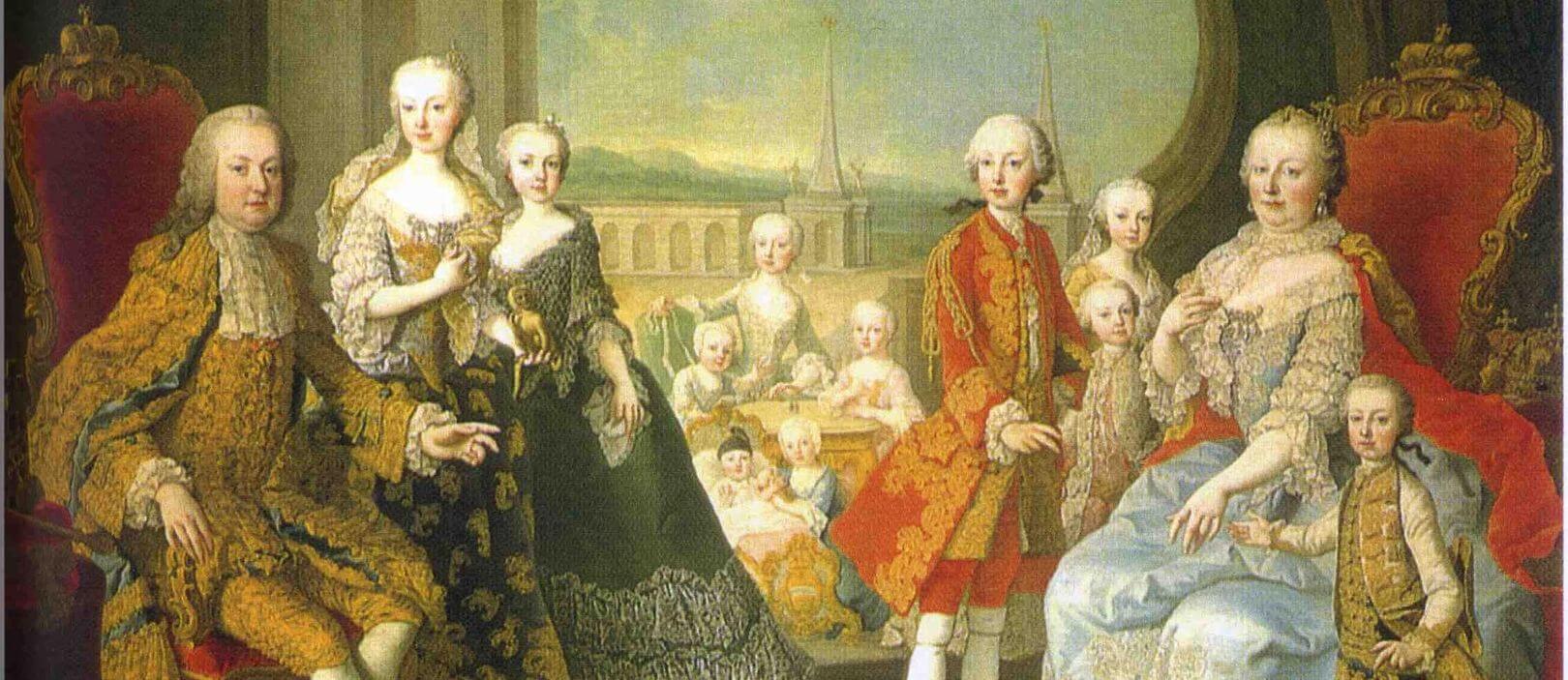
Meet the Habsburgs - April 11, 6:30pm
For over six centuries Austria and much of Europe was ruled by the Habsburgs Dynasty. Their influence is clearly found throughout much of Europe today. Come learn a bit of Austrian and Slovenian history. Emphasis will be placed on Maria Theresia and Joseph II. We will explore Schonbrunn and the Spanish Riding School in Vienna. We will also practice German greetings. Presentation by Orin James.Fall 2017
COMPARATIVE HEALTHCARE IN GRAZ GENERAL INTEREST MEETING Austria and Beyond - September 6, 6:30pm Come learn more about this popular exciting study abroad opportunity from me and students who have experienced it.
THE EFFECTS OF GLYCEROL ON ANTIFREEZE PROTEINS Open Lab Night - September 13, 6:30pm Get caught up on the research going on in the OrJames lab. This presentation will highlight the steps that brought me to this point, current data and moving forward. Students interested in research opportunities are strongly encouraged to attend this talk.
Hispanic Heritage Month -The OrJames Laboratory honors Hispanic Heritage Month.

Luis E. Miramontes - September 27, 6:30pm
Born in Tepic, Mexico in 1925, Luis would go on to earn his first degree in chemical engineering from the Universidad Nacional Autónoma de México, before inventing the key ingredient that will forever alter the discourse of family planning and the role of science therein. Luis Miramontes, at the young age of 26 synthesized norethisterone, the chemical that allowed the first oral contraceptive, or "the pill" to do its job with great potency. Come learn more about this great individual and his works. Presentation by Orin James.
Mario J. Molina - October 11, 6:30pm
Mario José Molina-Pasquel Henríquez received the Nobel Prize in Chemistry for his role in detailing the threat to the Earth's ozone layer of chlorofluorocarbon gases. The strong present-day laws designed to protect the ozone layer attest to the importance of his work. Come learn more about this great individual and his works. Presentation by Orin James.A selection of Hispanic Poetry
Here is a short selection of poems from the Hispanic Diaspora I put together. Authors include: Nicolás Guillén, Frederico García Lorca, and Pablo Neruda. Recordings were taken from vinyl, hence the scratchy background noise. Nonetheless it's worth the listen. Enjoy hereTHE ORJAMES LAB CELEBRATES THE HUMANITIES AND SCIENCES: MEDIEVAL EUROPE
The following series of events are designed to demonstrate the often unnoticed intersection between the humanities and natural sciences. I will focus on ways in which science was used to explain and describe the emotion of love during Medieval Europe as found in literature and how this may have changed over time as science developed. For this, I turn to Italian writer, Dante Alighieri’s transformational text "La Vita Nuova" (The New Life). In this piece, Dante uses both scientific and philosophical principles of optics and the soul known to him and others during his time to elucidate his strong affection towards Beatrice for an audience enthralled by the humanities, more specifically, by the idea of courtly love. I will explore this intersection over a three week period. References will also be made to Chrétien de Troyes' Cliges and Joseph Bedier's tale of Tristan and Iseult.
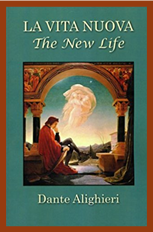
DANTE ALIGHIERI'S LA VITA NUOVA - OCTOBER 25, 6:30PM
This event will be a discussion of the book La Vita Nuova. We will discuss the various ways in which courtly love is depicted and possibly defined. We will also make note of the use of magic. A free copy of the text can be found online here. Attendees are also encouraged to read "Cliges" and "Tristan and Iseult". Presentation by Orin James.SCIENCE IN MEDIEVAL EUROPE - NOVEMBER 8, 6:30PM
This event will serve as an introduction to a variety of scientific principals and philosophical schools of thought that developed as a result of intellectual exchange between Europe and the Islamic Empire. Emphasis will be placed on astronomy, alchemy, mathematics, and the development of optics (extramission theory). We will than make the connection between these developments and the depiction of love in La Vita Nuova. Presentation by Orin James.
OPTICS LAB EXERCISE - NOVEMBER 15, 6:30PM
During this event we will discuss the behavior and properties of light as they occur in nature. We will than compare our understanding of optics today (intromission theory) to medieval Europe (extramission theory) and how our modern day understanding may alter our approach to describing and writing about emotions such as love within the realm of the humanities. Attendees will participate in an optical bench lab exercise that will demonstrate the formation of images using light, an object and various lenses. Presentation by Orin James.SPRING 2017
Local School Districts -The OrJames Laboratory welcomes K-12 students from local school districts annually to demonstrate healthy ways of living while doing physical activities and working with animal dissections.
Black History Month -The OrJames Laboratory honors Black History Month.

George Washington Carver - February 8, 6:30pm
Born into slavery and orphaned as a child, George Washington Carver grew to become one of the nations leading agriculture scientists of his time. He is credited with providing the world with various uses of the peanut. These uses include dyes, and plastics among other things. Carver ultimately devoted his life to helping former slaves earn a high quality education. Come learn more about this individual and his experiments. Presentation by Orin James.
Charles Drew - February 22, 7:00pm
Born in Washington DC on June 3, 1904, Charles Drew was pioneer in medical research. His work led to the development of ways to safely process and store blood in blood banks. His wisdom and knowledge led him to direct blood plasma programs for the US and Great Britain during WWII. Come learn more about this great individual and his work. Presentation by Orin James.Women's History Month -The OrJames Laboratory honors Women's History Month.

Marie Curie - March 15, 6:30pm
Born in Warsaw, Poland in 1867, Marie Curie as a dedicated scientist, worked with the mineral pitchblende and discovered a new radioactive element, now named polonium, after her native country. In the same pitchblende, she found another radioactive material, now called radium. In 1903 Marie Curie made history, as she became the first women to win the Nobel Prize in physics. In 1911 Marie won her second Nobel Prize, this time in Chemistry. Come learn more about this great individual and her experiments. Presentation by Orin James
Florence Nightingale - March 22, 6:30pm
While grappling with the cholera outbreak during the Crimean War during the 1850's, Florence saw first hand the need to improve hygiene practices. This same war presented Nightingale with the horrific conditions of the British base hospital in Constantinople, which in turn inspired her revolutionary work to modify the hospital setting. Come learn more about this great individual and her work. Presentation by Orin James.All Roads Lead to Austria -The OrJames Laboratory hosts a series of events annually leading up to The Comparative Healthcare in Graz summer program for students.

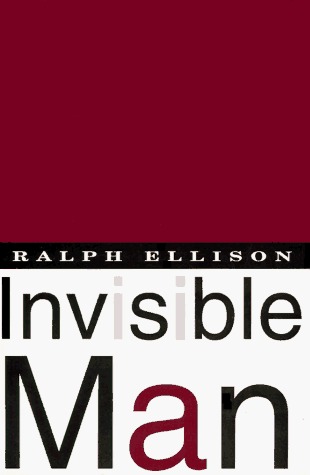
.jpg)